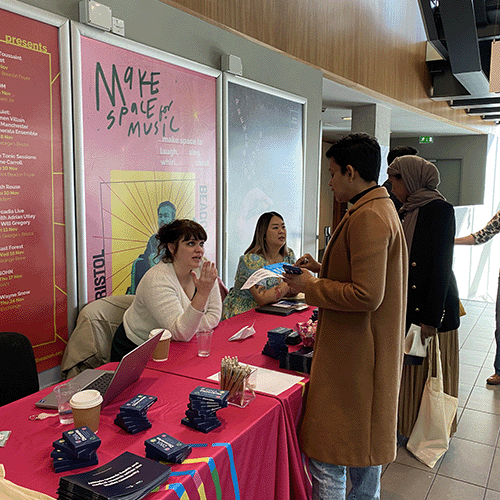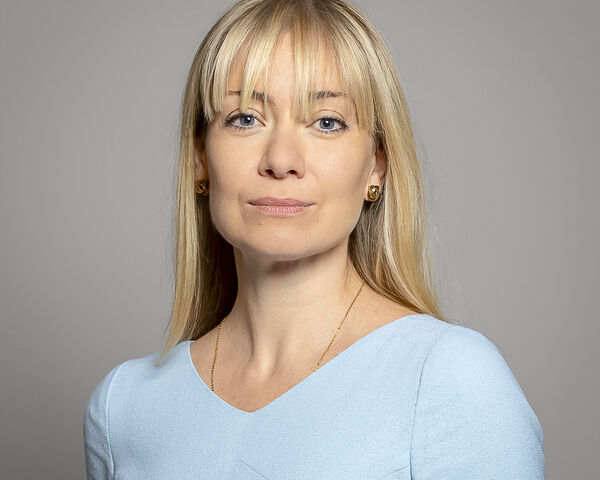Engaging to build trust: Genomics England Ambassadors
Envisioning a world where everyone benefits from genomic healthcare
At Genomics England, what we want is a world where everyone benefits from genomic healthcare, regardless of their background. To do that, we know it is crucial to engage with people, and not just researchers and patients. We know that engagement is not a tick box exercise. We know that we need to talk to people, to hear from those who are cautious or uncertain, and to really listen.
Why engagement is one of our main pillars
Through our work with Muslim Census, among other engagement work, we know that studies of genetic diseases are largely based on data contributed by those of European ancestry, with ethnically diverse people being massively underrepresented A report we commissioned show that more than a fifth of UK Muslims surveyed don’t trust that their data will be held securely by any institution.
Our ultimate goal, from an engagement perspective, is to help everyone to understand the benefits, as well as the consequences, of genomic healthcare so that people can make informed decisions about their lives. Part of this involves opening a two-way dialogue with communities where we know health inequalities exist and are less engaged – if at all – with the concept of genomic health. We know that we are often not the first source that people curious about improving healthcare come to for information, and we know that we shouldn’t be in some respects. From our work on the GenOMICC COVID-19 Study, we know that an unknown organisation trying to encourage people to talk about their personal data to research can be daunting. And so, we have partnered with representatives from various communities, who are already engaging with their networks, to become Genomics England Ambassadors.
Ambassadors are essential to our engagement work
There are many underrepresented communities not only in genomic research, but also from an engagement perspective. What we don’t want to fall into the trap of tick-box exercises, so we support our Ambassadors in using their powers of engagement for good. We work with them to develop content and campaigns, letting them take the lead as their know their audiences best, to effectively and meaningfully drive the conversation around genomics.
You will be able to find examples of their work through our new blog series on our website.
We currently have three Ambassadors working with us:
1) Aman Ali is a community organiser who has played various national and local roles in Muslim communities for more than a decade. He’s been the Head of Community Engagement at MEND, trustee of the East London Mosque and Head of Media at the Federation of Student Islamic Societies to name a few.
Aman’s work with us so far:
- Helped us recruit members of the public from Muslim communities across the country for the GenOMICC COVID-19 Study.
- Muslim Census on UK Muslims’ attitudes to healthcare research:
Report here,
Insights article here - Written a blog piece here on Mind the Gap: Stories of Health Data Equity about how he became involved in community organising work.
2) Primrose Granville is a community health campaigner leading the Black Health Matters Programme on behalf of Genomics England in Bristol. Primrose was born, raised and educated in Jamaica, migrating to the UK when she was 27 years old. Today, 25 years on, she is a journalist, presenter and producer on BCFM and a well-known figure at the heart of the African and Caribbean community in Bristol. She was born with Polycystic Kidney Disease, as was her mother, grandmother, sister, son and probably several others in her family. She has won many awards for her work for her community, using her health journey to raise awareness and strives to 'improve the healthcare system for people of all backgrounds and encourage under-represented communities to engage in health discussions and research, practice healthy lifestyle habits & consider becoming blood & organ donation in order to save lives.'
Primrose’s work with us so far:
- Helped us recruit members of the public from Black and ethnic minority backgrounds for the GenOMICC COVID-19 Study through creating a series for her radio programme entitled Black Health Matters. On the radio show, she interviewed Vivienne Parry, our Head of Public Engagement to explain genomics.
- Leading an upcoming docuseries, ‘The Primrose Files’, on the differences in sentiment on equity of healthcare between Black Caribbean and Black African communities in the West of England, versus those currently living in Jamaica.
- Organising a Bristol Community Health Day, where local people can discuss their and their family's health with NHS clinicians, and grassroots health organisations as well as workshops, consultations and seminars – info here.
3) Dr. Amalina Bakri is a Clinical Research Fellow at the Institute of Global Health Innovation, Department of Surgery and Cancer at Imperial College, London. Aside from her academic and clinical work, Dr. Bakri is a strong advocate for women's empowerment and shares educational posts for public health education and medical teaching for medical students and junior doctors on social media.
Dr. Bakri’s work with us so far:
- Creating a series of videos for social media where Dr. Bakri explains genomics in an accessible way. Watch her video discussing what genomic sequencing is here and about the potential of using whole genome sequencing in newborn screening here.
More of this kind of content from Amalina coming – follow us on Twitter, Instagram and Facebook.

Genomics England representatives at Bristol Community Health Day.
If you are interested in becoming an ambassador for Genomics England, find out more here.


